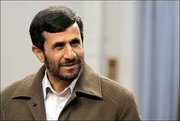… maybe it’s the time of year. Yes, and maybe it’s the time of man. And I don’t know who I am. But life is for learning.
- Joni Mitchell/CS&N (Woodstock) 1970
What’s a hippie? What’s the difference between an old hippie and a new hippie? Once a hippie, always a hippie? These and similar questions are the source of much debate today. New subcategories like web-hippies, cyber-hippies, even zippies have become fashionable. But what is a hippie and are you one? To answer this question, let’s see what defines a hippie. Some say it’s the way people dress, and behave, a lifestyle. Others classify drug users and rock 'n' roll fans or those with certain radical political views as hippies. The dictionary defines a hippie as one who doesn’t conform to society’s standards and advocates a liberal attitude and lifestyle. Can all these definitions be right?
It seems to me that these definitions miss the point. By focusing on the most visible behavioral traits these limited descriptions fail to reveal what lies in the hippie heart that motivates such behavior. To understand The Way of the Hippy, we must look at those circumstances that preceded the birth of the hippy movement, the important events that changed our lives, our resulting frustration with society, and the philosophy that developed from our spiritual maturation.
Hippy is an establishment label for a profound, invisible, underground, evolutionary process. For every visible hippy, barefoot, beflowered, beaded, there are a thousand invisible members of the turned-on underground. Persons whose lives are tuned in to their inner vision, who are dropping out of the TV comedy of American Life.
- Timothy Leary (The Politics of Ecstasy) 1967
My view is that being a hippie is a matter of accepting a universal belief system that transcends the social, political, and moral norms of any established structure, be it a class, church, or government. Each of these powerful institutions has it’s own agenda for controlling, even enslaving people. Each has to defend itself when threatened by real or imagined enemies. So we see though history a parade of endless conflicts with country vs. country, religion vs. religion, class vs. class. After millennia of war and strife, in which uncounted millions have suffered, we have yet to rise above our petty differences.
The way of the hippie is antithetical to all repressive hierarchical power structures since these are adverse to the hippie goals of peace, love and freedom. This is why the “Establishment” feared and suppressed the hippie movement of the ’60s, as it was a revolution against the established order. It is also the reason why the hippies were unable to unite and overthrow the system since they refused to build their own power base. Hippies don’t impose their beliefs on others. Instead, hippies seek to change the world through reason and by living what they believe.
Imagine no possesions, I wonder if you can, No need for greed or hunger, A brotherhood of man. Imagine all the people sharing all the world.
- John Lennon (Imagine)
To be a hippie you must believe in peace as the way to resolve differences among peoples, ideologies and religions. The way to peace is through love and tolerance. Loving means accepting others as they are, giving them freedom to express themselves and not judging them based on appearances. This is the core of the hippie philosophy.
…see the whole thing is a world full of rucksack wanderers, Dharma Bums refusing to subscribe to the general demand that they consume production and therefore have to work for the privilege of consuming, all that crap they didn’t really want anyway such as refrigerators, TV sets, cars, …all of them imprisoned in a system of work, produce, consume, work, produce, consume, I see a vision of a great rucksack revolution thousands or even millions of young Americans wandering around with rucksacks, going up to mountains to pray, making children laugh and old men glad, making young girls happy and old girls happier, all of ‘em Zen Lunatics who go about writing poems that happen to appear in their heads for no reason and also by being kind and also by strange unexpected acts keep giving visions of eternal freedom to everybody and to all living creatures.
- Jack Kerouac (The Dharma Bums) 1958
The hippy movement erected signposts for all to see. Some warn us of impending danger, others direct us towards richer, more fulfilling lives, but most show us the road to freedom. Freedom is the paramount virtue in this system. Freedom to do as one pleases, go where the flow takes you, and to be open to new experiences. This engenders an attitude that allows for maximum personal growth.
If you want to be free, be free, because there’s a million things to be.
- Cat Stevens (If You Want to Sing Out)
Our society only permits you one or two weeks a year of freedom to pursue your own agenda. The rest of the time we are slaves to the system. Hippies reject the 9 to 5 lifestyle and therefore are objects of ridicule by those whose lives run by the clock. Programmed people are jealous and resent the freedom we possess. The unmitigated freedom that hippies represent is the greatest threat to any system in which control equals power.
I like ideas about the breaking away or overthrowing of established order. I am interested in anything about revolt, disorder, chaos, especially activity that seems to have no meaning. It seems to me to be the road towards freedom - external freedom is a way to bring about internal freedom.
- Jim Morrison
With all this freedom comes a lot of responsibility. The system does not make it easy for us to survive without sacrificing our values. Therefore we must discover alternative ways to make a living without being a drag on our planet’s resources and our fellow humans. Hippies have pioneered numerous lifestyles and alternative businesses including communes, cooperatives, holistic medicine and health food. We focused everyone’s concern on the environment to highlight our responsibilities to our planet and to future generations.
I’ve been smiling lately, dreaming about the world as one. And I believe it could be, someday it’s going to come.
- Cat Stevens (Peace Train)
Other beliefs that spring from our core philosophy are: an earthy spirituality such as a belief in Gaia (the earth as an organism), the Greens movement (political activism), even shamanism and vegetarianism. These philosophical and political views reflect a respect for nature and the planet as a whole, something lacking in our capitalistic and materialistic societies. The world needs hippies to point out alternatives to the entrenched system and warn of the impending disasters that await us if we don’t change our lifestyles. The goal is not to make everyone a hippie (what would we have to protest?). Rather we can try to influence others by example, through tolerance and love and teaching the virtues of the hippie way.
You create your own reality.
- Seth (Seth Speaks)
So being a hippie is not a matter of dress, behavior, economic status, or social milieu. It is a philosophical approach to life that emphasizes freedom, peace, love and a respect for others and the earth.
The way of the hippie never died. There have always been hippies from the first time society laid down rules, to Jesus, to Henry David Thoreau, to John Lennon, to you and me. I believe there’s a little hippy in all of us. It’s just been repressed by our socialization process. We need to find it and cultivate our hippie within. Only then can we reach our true potential.
I took the road less traveled by, and that has made all the difference.
Robert Frost (The Road Not Taken)
As hippies age they come to terms with the same situations all humans must face. Wiser than before, let’s help the younger hippies find a way to save the earth and achieve more freedom than exists in our wildest dreams. Let’s find our common ground, build a worldwide community, and once again let our freak flags fly and become all we are destined to be.
Peace and Love,
Skip
Return to Hippyland homepage
more











































